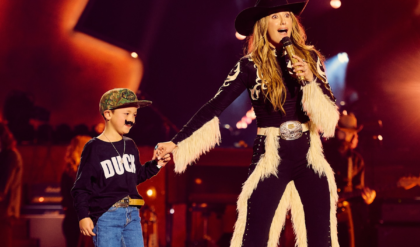
The Walking Dead is one of the most iconic and successful shows on television. However, that doesn’t mean it’s perfect. The show has had its fair share of ups and downs, and even its best seasons have flaws. In particular, there are a lot of questionable tropes that recur throughout The Walking Dead.
These tropes make up a big part of The Walking Dead‘s unique storytelling, but a lot of the fanbase has come to regard them as problems. They take all forms, from character actions to plot beats to storytelling choices. Despite this, many fans do regard the tropes with an ironic fondness, rolling their eyes at some of The Walking Dead‘s most common flaws.
10Killing Off The Walking Dead’s Promising Characters
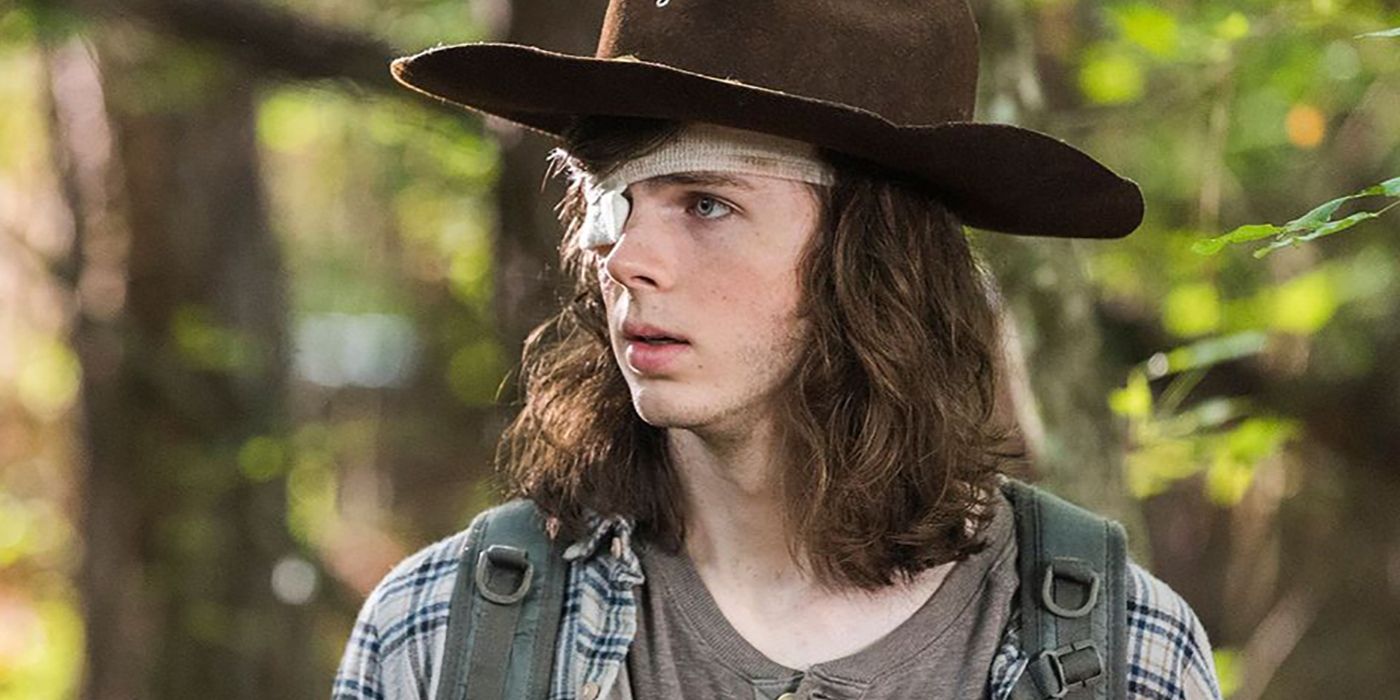
The early seasons of The Walking Dead are known for their uniquely tense atmosphere. The high casualty rate makes it feel like no character is safe. Antagonists, heroes, minor characters, and major characters are all on the chopping block. In later seasons, The Walking Dead doesn’t take as many risks, but it strives to keep its reputation for character bloodshed.
Many other character deaths in The Walking Dead have just disappointed fans. Characters with plenty of potential rampantly die before they get to explore it, which was seen with Sophia, Siddiq, and Jessie.
9The Walking Dead Has Some Very Repetitive Storylines
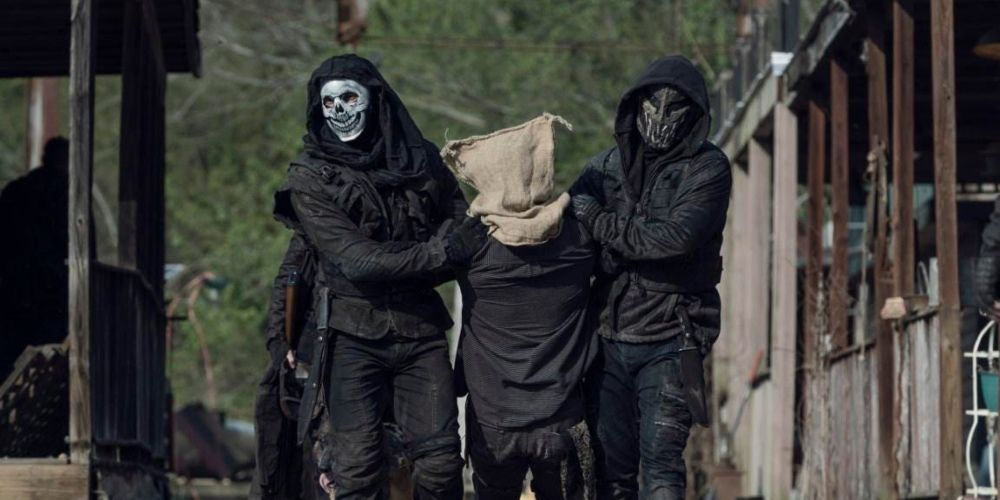
The Walking Dead has told a great many stories over its 11 seasons. Some of these have been fresh and original, but others have felt like retreads of what has come before. This applies both to the show’s overarching story and to individual character plotlines.
The Walking Dead‘s main plot often comes down to a formula of going somewhere new, meeting a new villain, and going to war. Individual character storylines often hit similar beats, such as learning the value of human life or undergoing great suffering in isolation that leads to some form of epiphany. For many, The Walking Dead just feels too repetitive after many episodes.
8The Walking Dead’s Overuse Of Small-Group Episodes
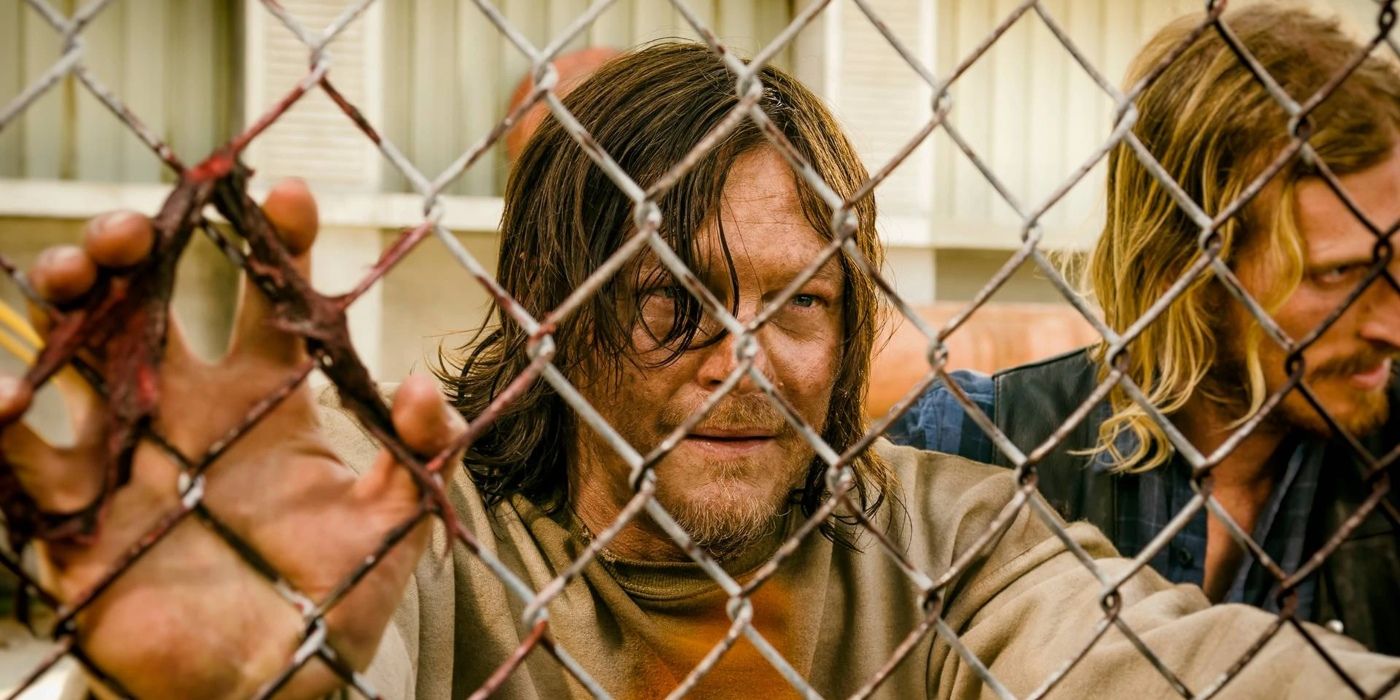
The Walking Dead has a vast cast and uses several techniques to streamline it. One of the most common tropes is to have episodes focus on a very small subset of characters, usually in a single location or doing a single activity.
In moderation, these episodes are well-liked. Season 4B uses them well to focus on character development and relationships after a season of fast-paced plot. Recent seasons have seen these episodes become more common, with events contriving to isolate groups away from the action. These small-group episodes have their supporters, but many find them overused and think they force too many characters out of focus.
7The Walking Dead Frequently Kills Off People Of Color
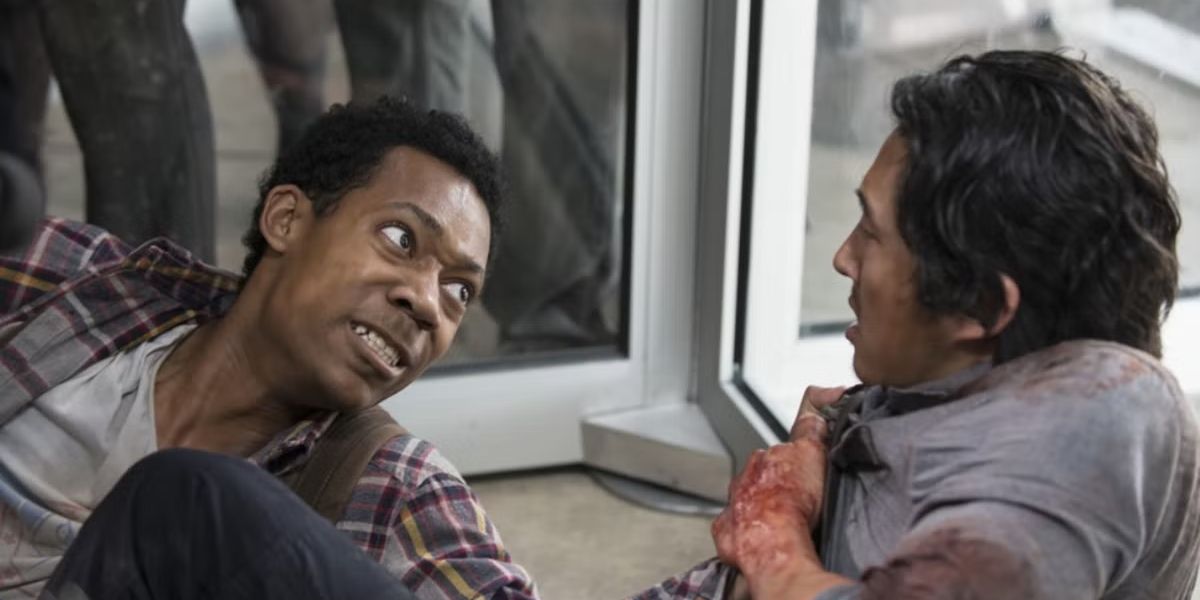
Representation is an issue that plagues The Walking Dead‘s earliest seasons. POCs are fairly rare and often go out of focus. However, one particular recurring issue in the early seasons is that these characters frequently die, often just as they have joined the cast.
In particular, T-Dog, Bob, Tyreese, and Noah suffered this fate. While The Walking Dead’s representation has vastly improved in later seasons, this is one of the most unfortunate tropes of the show’s early years.
6Too Many Cliffhangers
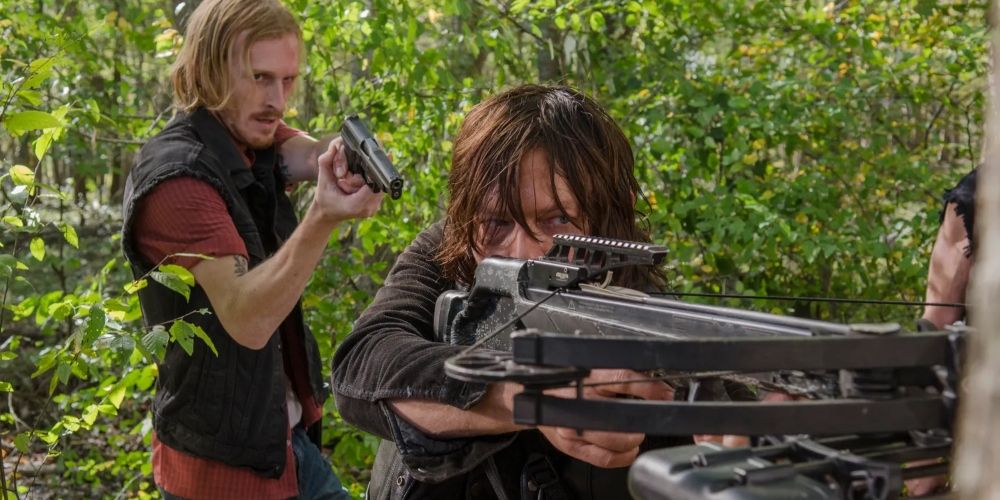
The Walking Dead has some excellent cliffhangers, as some episodes end on the perfect note that leaves fans wanting more. However, the show utilizes them too much. Episodes, storylines, and even entire seasons end with dire hints at what’s to come next.
Many fans think that The Walking Dead tries to get far too much mileage from cliffhangers. Seasons four and six are infamous for their cliffhanger endings, and many episodes make questionable use of them. The Walking Dead tries to make every episode leave fans wanting more, which sometimes has the opposite effect.
5Never-Ending Escalation In Its Storylines
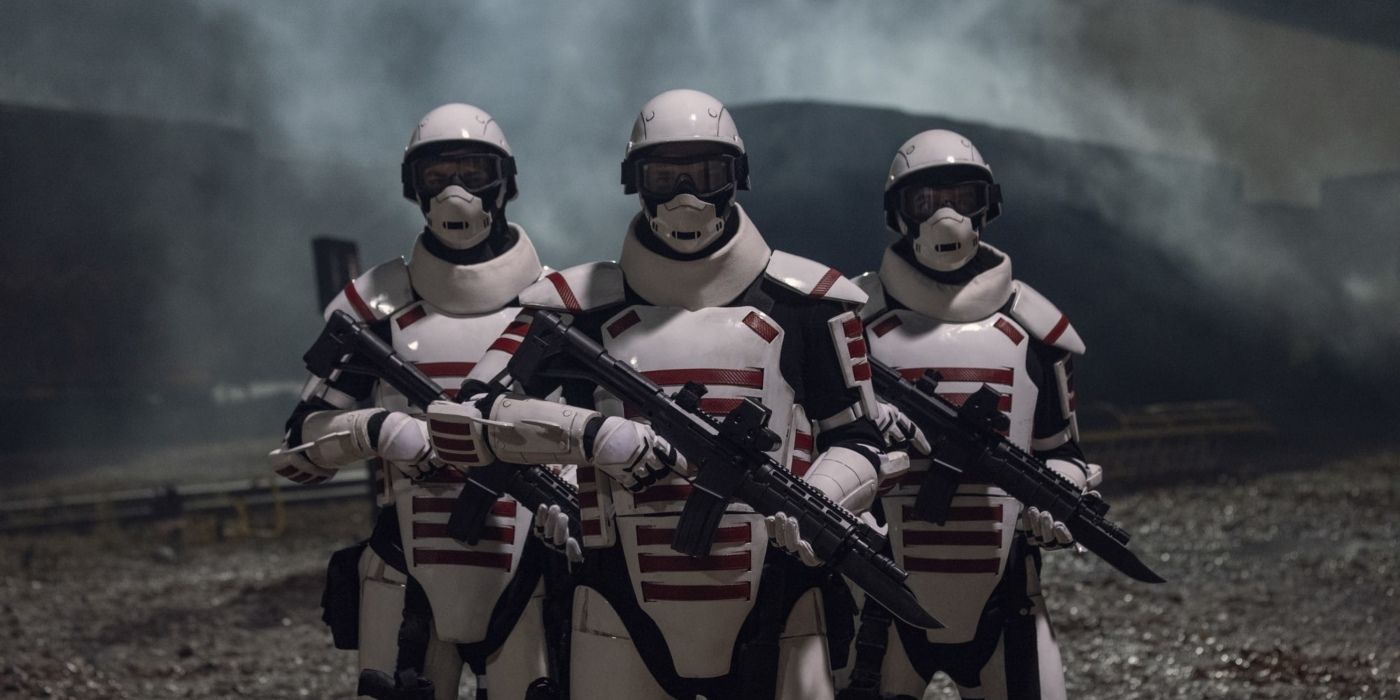
The Walking Dead begins on a very small scale. A tiny group of survivors attempts to stay alive a short way away from Atlanta. By its later seasons, entire communities are going to war with one another and thousands of lives are on the line. The show reaches this point through constant escalation.
Every time the survivors find somewhere to live, it’s a bit larger and more connected. Every villain has more resources at their disposal, up to and including entire fledgling governments. Some escalation is needed to keep The Walking Dead fresh, but many fans miss the episodes where walkers are serious threats and it’s just about a small group surviving.
4The Use Or Threat Of Sexual Assault By Villains
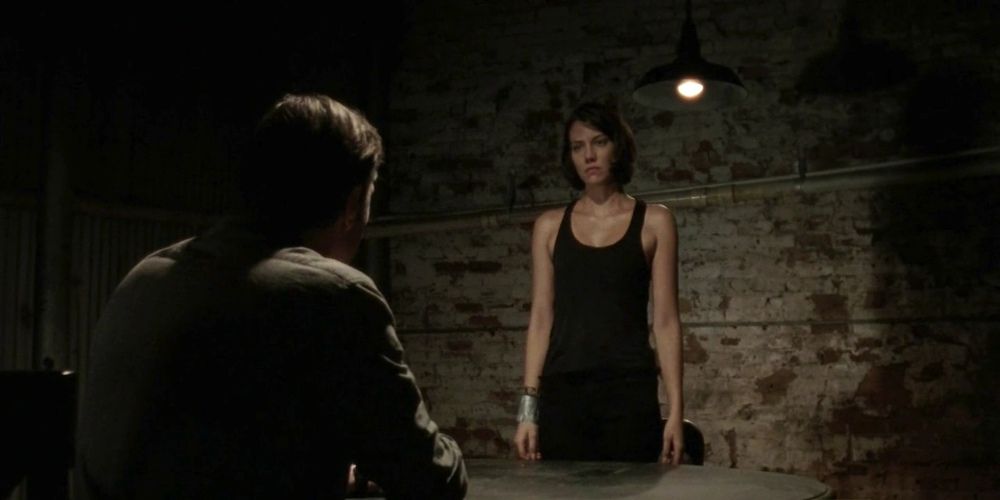
The Walking Dead is a dark show that deals with the worst excesses of humanity. However, there is one particular excess that many fans could do without. A recurring trend in the series is for villains to use sexual assault – or the threat of it – against characters. Maggie, Carl, Michonne, Lori, and more all suffer this threat within The Walking Dead‘s first four seasons alone.
Depicting sexual assault in the post-apocalypse isn’t necessarily terrible, but many take issue with the show’s handling of it. The Walking Dead rarely dwells on the serious consequences of assault. In particular, Negan is infamous for claiming to oppose assault while forcing many women to marry him, which The Walking Dead doesn’t address for many seasons.
3Dragging Out Storylines Far Too Long
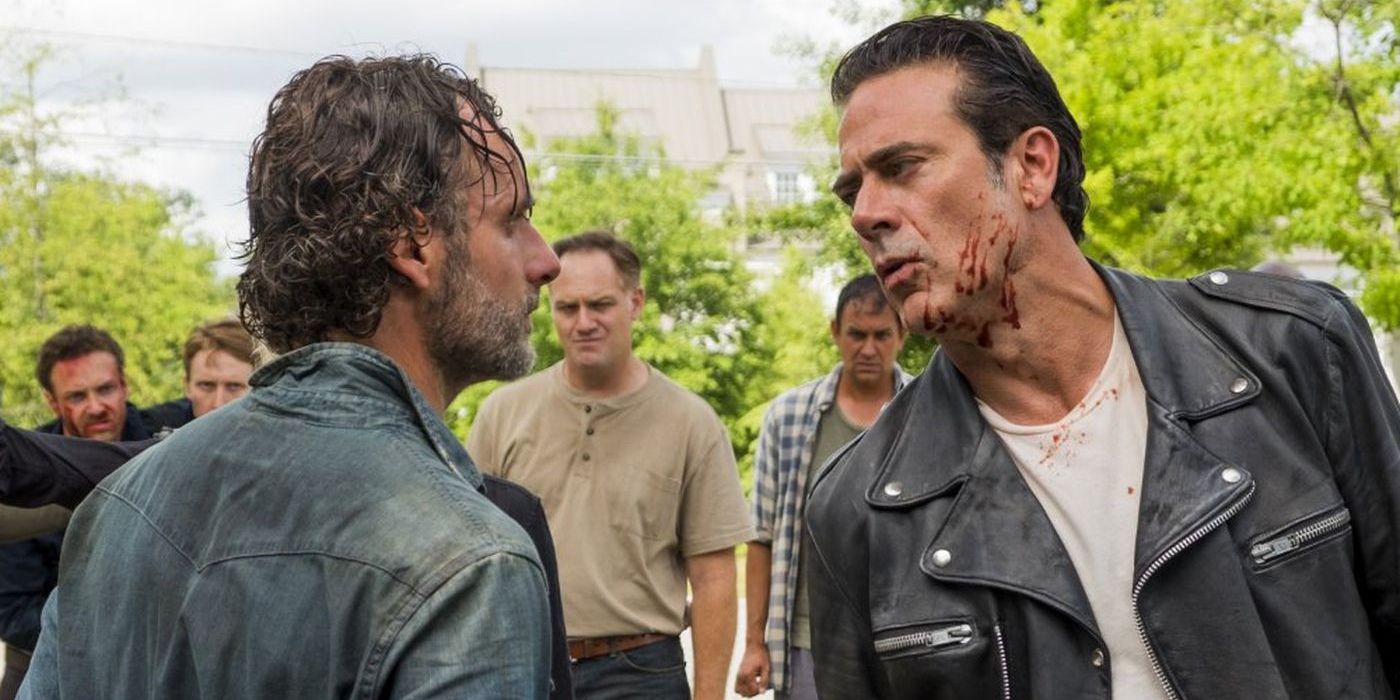
The concepts in many of The Walking Dead‘s storylines are solid. However, the execution is lacking for many. The show tends to draw its storylines out to the point of tedium. The most infamous case of this is the Savior War. A potentially high-impact storyline gets dragged into a season of Negan repeatedly humiliating Rick, and a season of indecisive battles.
The Walking Dead likes to indulge in side stories and bottle episodes that don’t actually progress events. In addition, it tends to hammer its points home repeatedly and show a huge number of characters reacting to things. Several episodes at a time can pass without any forward plot movement, making fans grow tired of most storylines long before they conclude.
2Death Fake-Outs To Build Tension
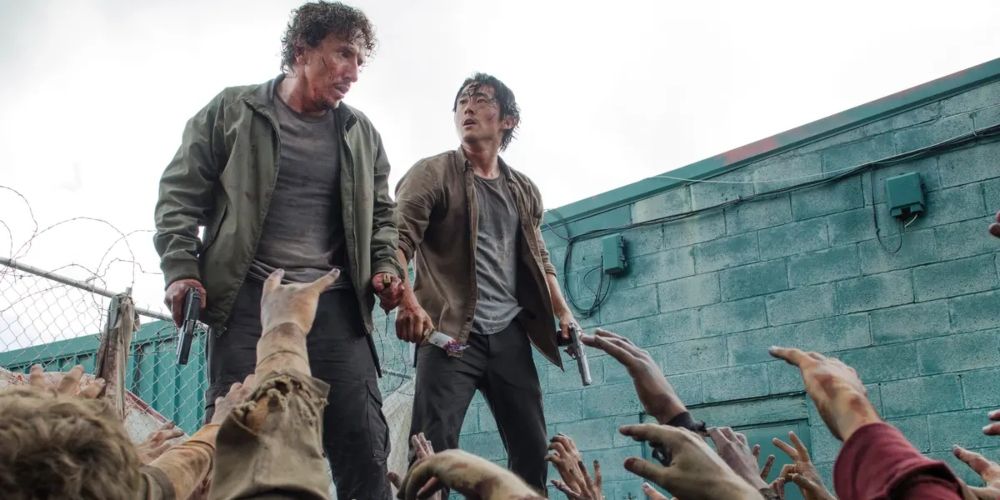
Plenty of fans complain about The Walking Dead‘s deaths, but there are also complaints about the occasions it doesn’t kill characters. A few episodes of The Walking Dead are notorious for pretending to kill characters, only to cop out and have them survive.
Glenn’s fall from a dumpster into a horde of walkers is an iconic example. The Walking Dead drags the tension of his death out for three episodes, only to show an improbable survival. The Walking Dead advertised Rick Grimes’ final episodes heavily, only to whisk him away in a helicopter. There are numerous smaller, less gratuitous examples, all of which have made fans tired of fake deaths.
1The Overuse Of Melodramatic Speeches
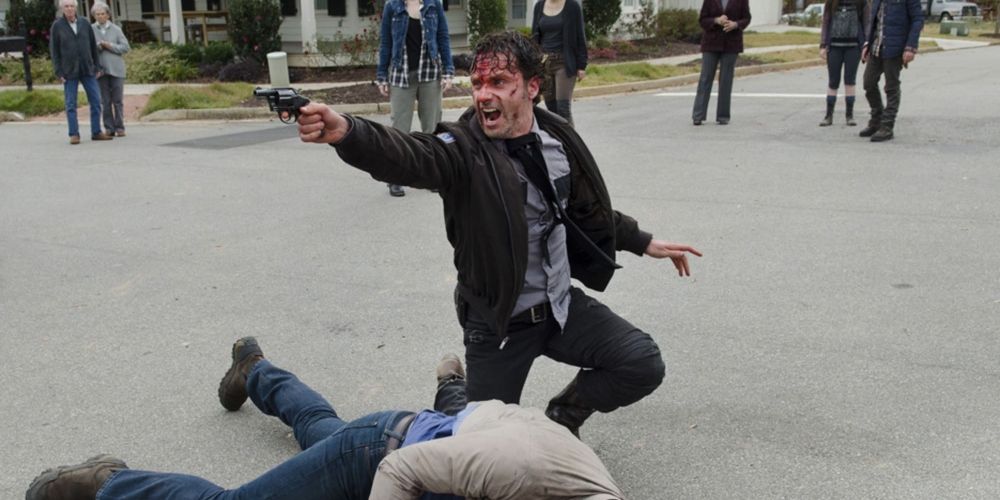
Much of The Walking Dead‘s earliest dialogue is realistic and well-written. As the show goes on, however, a tendency for characters to make big, unrealistic speeches creeps in. These earliest speeches, such as Rick ending the group’s pretense of democracy or his pleading with the Governor, are considered some of the show’s best moments.
However, later seasons of The Walking Dead indulge in speechifying far too often. Characters stop everything to preach about the value of human life, fair leadership, or the state of the world. It comes off as corny, and most of these later speeches fall flat through overuse.




